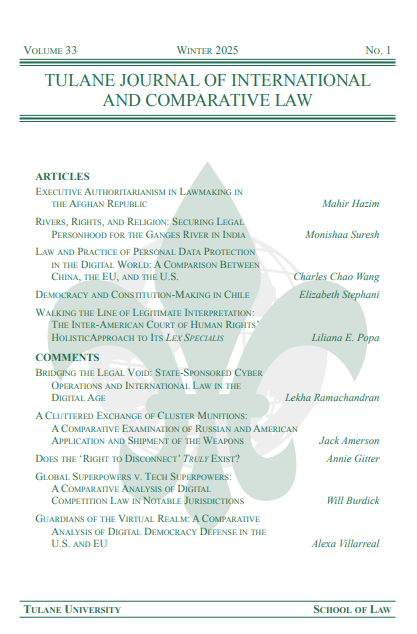Walking the Line of Legitimate Interpretation: The Inter-American Court of Human Rights’ Holistic Approach to Its Lex Specialis
Abstract
In this Article, I examine the main arguments advanced by a vocal chorus of state actors and legal scholars who question the interpretative legitimacy and, as a result, criticize the authority of one of the most successful international human rights courts, the Inter-American Court of Human Rights, to read and interpret the American Convention on Human Rights in the manner that it does. Because the main contestations are variations of an argument related to the Court’s duty to provide a consistent, authoritative, and valid interpretation of treaties, I refine the argument to convey the widely accepted idea that, in order to ensure authority and normative compliance with its decisions, the IACtHR must read the American Convention rationally, using basic interpretative norms and adhering to the 1969 Vienna Convention on the Law of Treaties’ standard of interpretation. To determine whether the Court typically adheres to the aforementioned criteria, the Article focuses on the variables and characteristics that contribute to the Court’s interpretative authority and legitimacy, and also on the Court’s interpretive strategies and explanations for their usage. The methodology used to develop this analysis is mostly empirical, with a focus on case law when considering the analytical framework provided by scholarship.
